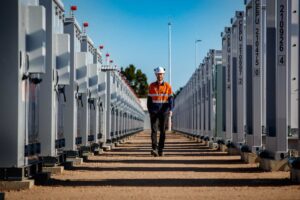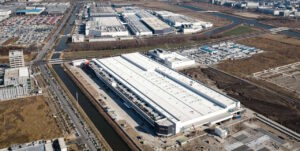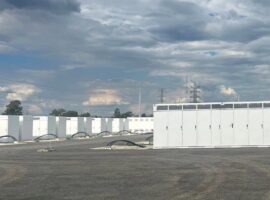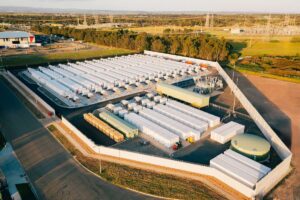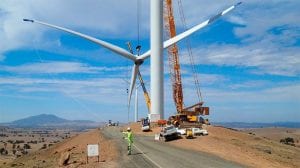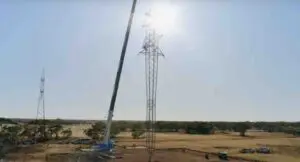Land that has been used to store Melbourne’s rubbish will get a new lease of life as host to a $180 million solar and big battery project in the largest development of its type in Australia.
The project, which will consist of a 27.5MW of solar farm and a battery of up to 115MW (the length of storage has not been determined), would be constructed on land that is being restored after being used as a landfill in the south-east Melbourne suburb of Springvale South.
The project received planning approval after a successful appeal to the Victorian Civil and Administrative Tribunal (VCAT) after the Greater Dandenong City Council initially failed to grant a planning permit.
The project is being developed by Progress Power, a subsidiary of Progress Earth, which has been responsible for the site’s remediation.
The prospect of a large-scale solar farm being built at a location that is in an otherwise suburban area has received a mixed response from locals, who wanted the former landfill site to be converted to green space.
The Greater Dandenong City Council had initially imposed conditions on the solar farm development to require a certain portion of the site to be used as publicly available open space.
However, this requirement was overturned by VCAT, following an appeal by the project developers.
“Council is very disappointed with this outcome, and in particular the loss of the area of open space for the community, as the inclusion of this was a key reason for Council supporting the proposed solar farm,” the council said in a statement.
The company said that the site is unable to host residential developments or trees due to the risks of disturbing the underlying landfill and has not been used as a proper green space since the 1970s when it was used as a sand extraction pit and subsequently converted to a landfill.
Progress Power director Craig Carter said the combined solar and storage facility was an ideal use for a site that will eventually contribute to Victoria’s renewable energy and emissions reduction targets.
“This renewable energy project will make Melbourne a leader in green technologies and help the state and federal governments achieve critical emissions goals,” Progress Power director Craig Carter said.
“Progress Power shows how we can give new life to old landfills and create a resource that benefits the environment, the economy and the community.”
The landfill site is already host to a 4.8MW landfill gas generator that uses methane produced by the landfill to generate electricity.
As part of the remediation of the landfill site, Progress Earth has worked with Melbourne Water to employ clay enriched biosolids – the residual material left over from the processing of wastewater – to install an effective cap over the old landfill.
“I hope this project actively encourages other landfill owners, whether private or public, to consider opportunities to reuse waste products as part of their required landfill cap rehabilitation works. Right now, landfills are capped using an expensive manufactured geofabric membrane. This need not be the case,” Carter added.
Melbourne Water has amassed a 1.3 million tonne stockpile of the residual material, but gained approval for it to be used to effectively seal off the old landfill and provide a solid foundation to host the solar farm.
“Melbourne Water had been seeking an affordable reuse outlet for geotechnical grade biosolids (biosolids with high clay content) from our Eastern Treatment Plant for a number of years. The project was able to beneficially reuse a significant quantity of geotechnical grade biosolids to rehabilitate a nearby landfill site,” Melbourne Water manager Jenelle Watson said.
The project is expected to commence construction in 2022, with full operation expected by 2023.

